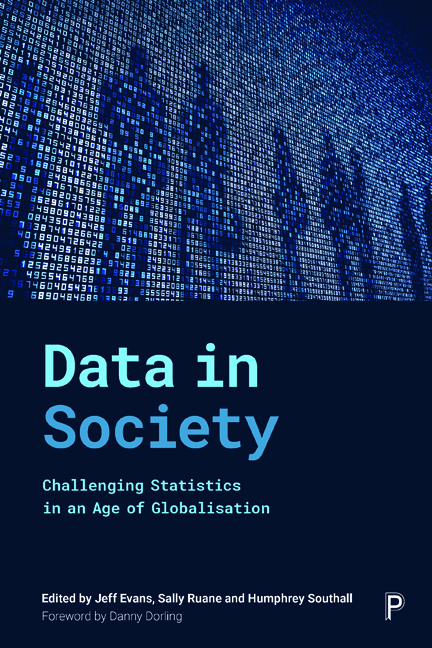Book contents
- Frontmatter
- Contents
- List of figures, tables and boxes
- Notes on contributors
- Foreword
- Preface
- General introduction
- Part I How data are changing
- Part II Counting in a globalised world
- Part III Statistics and the changing role of the state
- Part IV Economic life
- Part V Inequalities in health and wellbeing
- Part VI Advancing social progress through critical statistical literacy
- Epilogue: progressive ways ahead
- Index
28 - Full Fact
Published online by Cambridge University Press: 30 April 2022
- Frontmatter
- Contents
- List of figures, tables and boxes
- Notes on contributors
- Foreword
- Preface
- General introduction
- Part I How data are changing
- Part II Counting in a globalised world
- Part III Statistics and the changing role of the state
- Part IV Economic life
- Part V Inequalities in health and wellbeing
- Part VI Advancing social progress through critical statistical literacy
- Epilogue: progressive ways ahead
- Index
Summary
Introduction
Full Fact is the UK's independent, nonpartisan, fact-checking charity. We provide free tools, advice and information so that anyone can check the claims from politicians, journalists and other figures influencing public debate in the UK.
Simply publishing fact checks is not going to stop the spread of unsubstantiated claims or improve the overall accuracy of public debate. That idea has been discredited at least as far back as the 2008 US general election when FactCheck.org, one of the first generation of fact-checking organisations, concluded that despite more aggressive fact checking than ever before, ‘millions of voters were bamboozled anyway’ (Jamieson and Jackson, 2008). Research that does not take account of this is of limited use to us.
Full Fact is a second-generation fact-checking organisation. We see our dual role as ensuring reliable information is available, and stopping the spread of specific unsubstantiated claims. Africa Check and Argentina's Chequeado are two other examples. Publishing fact checks is just one tool in our work.
In the short term, we fact check, which has three benefits: giving people reliable information to make up their own minds on big issues; scrutinising the claims of people in public debate; and building an evidence base of how specific unsubstantiated claims arise and are spread.
Then, when we see specific unsubstantiated claims, we get those claims corrected at source. We’ve secured corrections from a Prime Minister and national newspapers, and we’ve worked with official statistics providers and charities to improve the way they present their information when it has been persistently misinterpreted.
In the medium term, we use the evidence from our fact checking to diagnose systemic problems and get systemic changes such as improvements to press complaints procedures.
In the long run, we are in a fight about the culture of public life.
We do not give claims accuracy ratings: we see our job as filling in shades of grey when campaigners often talk in black and white. We also use a variety of formats other than a written fact check, such as a simple ‘claim and conclusion’, videos, graphics, as well as interviews on radio and TV.
- Type
- Chapter
- Information
- Data in SocietyChallenging Statistics in an Age of Globalisation, pp. 359 - 364Publisher: Bristol University PressPrint publication year: 2019



